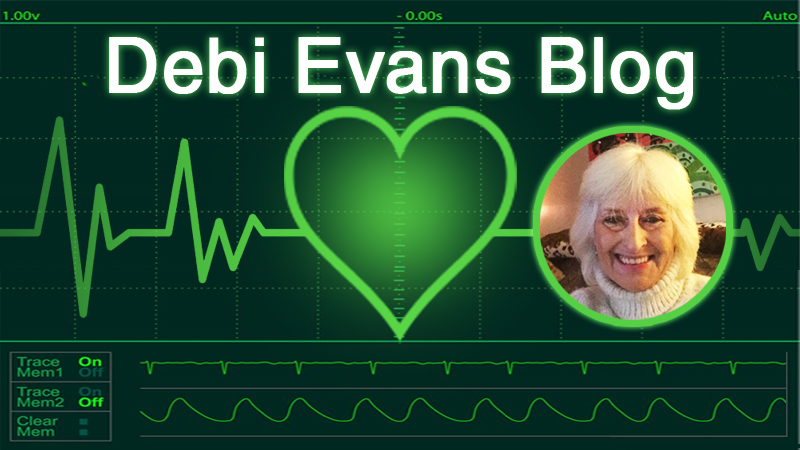
As the snow and ice that the UK has seen in recent days passes, we are reminded how little it takes for our country to pretty much come to a standstill. With some airports closed and roads impassable, you would think we would have learned from the past. I hope you have all remained as warm as you can afford.
I am sure that you, like me, have been putting extra blankets, jumpers and woolly socks to good use. As fifteen inches of snow were forecast, we were histrionically warned of “risk to life” and to avoid making journeys wherever we could. Where and when have we heard that before? Anyone would think those who are in power don’t want us to travel.
This week, I would like to respond to some of our audience who have asked more about how to make a ‘living will’ and why you may wish to consider making one. I hasten to add, I am not a lawyer and I can only provide links to take you to more information. I would urge that everyone do their own research and find their own legal counsel.
That said, I will do my best to explain how we have come to this, together with a few signposts that will give you more information.
Do you know what is contained within your medical records? Do you know where your medical records are, in their entirety? Not all notes are together: hospital records, private consultations and NHS notes may be separate from GPs’ records for primary care. How many of us know what has been written about us, or where that information has ended up?
Long gone are the days of going into a GP’s surgery and being able to see shelves creaking under the weight of bulging brown envelopes of NHS patient notes, many of them looking a little tatty from multiple use. These days, our personal medical information is seemingly stored on a ‘cloud’. No-one knows which computer this refers to where it is or who has access to it—least of all, what is held within it.
We are hearing from more and more people who were, and who still are, unaware of the existence of a Do Not Resuscitate (DNR) notice on their records. Who and what deems someone as requiring a notice to all other professionals that, never mind the cause or reason, you, I or indeed your relative may be past their sell-by date?
One of the clues may come from the Rockford Frailty Scale. However, unless we all request full copies of our medical records and scrutinise every word that has been written about us, we have no clue as to what to expect in this regard. You may wish to consider asking for copies, or asking your doctor whether you have been given a clinical frailty score. If you have, you could ask what that score is and how it will affect ongoing care.
The term ‘frail’ is often used to describe elderly people. However, this concept of frailty is often inaccurate, as it is a term that has to span all ages and conditions. What does it mean to be ‘frail’? Something regarded as relatively minor may affect someone’s life in a way that might have a serious long-term outcome or impact.
The time taken to recover from health problems is observed by clinicians as ‘resilience’, meaning how quickly a person can recover. Someone with frailty may have no other diagnosed health conditions but may be living with the results of multiple past illness.
According to Age UK, around 10% of people over the age of 65 live with frailty, but this figure rises to between 25% and 50% among those aged over 85 years.
UK Column has been reporting on the NHS Long Term Plan for over a year. Within it, there are several important changes to how the NHS will work to support patients and their carers who are living with frailty or multiple long term conditions. In fact, it is one of the Plan’s priorities. The devil is in the detail and wrapped up in the disguise of ‘personalised care’.
One of the three ambitious plans is:
To identify and provide proactive support to older people living with frailty in the community.This, in practice, may mean a rapid scoring of frailty combined with providing a ‘falls team’ to visit the home or place of residence. Of course the aim is to look after us and keep us safe. The NHS Rightcare Frailty Toolkit can be found here. More concerning is that individuals deemed with ‘severe frailty’ are described in the toolkit as those who may be moving towards the end of their life. Enter NG191 or an ‘End of Life Care’ package, complete with DNR. As mentioned on the NHS website, “The NHS Long Term Plan also states that all hospitals with a 24-hour A&E will provide acute frailty service for at least 70 hours a week”. This means that patients can be clinically assessed for frailty within thirty minutes of admission. How would you score? If you score: 1 – You are fit, active and independent with an aggregated risk of death of 2% during your hospital admission 4–6 – You are vulnerable, but have an aggregated risk of death of 6% during your hospital admission 7 – You are ‘severely’ frail and completely dependent with an aggregated risk of death of 11% during your hospital admission 8 - You are very severely frail and completely dependent with an aggregated risk of death of 24% during your hospital admission. 9 - You are terminally ill with a life expectancy of less than six months. Clearly, a clinical frailty score does have the potential to affect a patient’s right to live or die. And who knew about the STOPP/START criteria? Many whom we are hearing from are worried that they will on the basis of their frailty score have novel experimental medications administered, or be put on protocols that may be regarded by some medical professionals as a stepping stone to ‘end-of-life care’: for example, NG191 and the Covid–19 Rapid Guidelines. Please familiarise yourself with them here. A ‘living will’, or as it is known in the NHS, an Advance Decision to Refuse Treatment (ADRT), is a mechanism you can use in order to refuse a specific type of treatment in the future. It alerts those closest to you and your health professionals (GP and/or hospital consultant) to your wishes, in case you are not in a position to communicate them at some time in the future. Please note, an advance decision is different from an advance statement. For those wishing to find out more about how to make a living will, there are a number of organisations offering resources. Here are a couple of links to get you started, but please remember to seek your own independent legal advice if you are unsure of anything. Age UK provides a fact sheet on how to make a living will, and Age Space supplies some helpful information. In addition, Harvard Medical School published this article entitled What is a living will? on the Harvard Health Publishing website.
Let’s talk bowel tests
It seems like those who are in control are watching UK Column! We often have spoken about the bowel tests which appear to be landing on everyone’s doorstep, mine included. Well, it’s time to welcome the new celebrity ‘trusted messengers’, a rinse-and-repeat of Britain’s customary narrative-implanting strategy for the mature generation: this time, Alan Titchmarsh (gardener to the stars) and Tommy Walsh. Launching the new NHS Help us to help you campaign, Tommy, who is himself a cancer survivor, and his mate Alan are answering questions (that have been written on toilet paper) about “how the NHS bowel screening programme in England works”. According to the horticultural duo, you owe it to your family and yourself to complete the quick test. Really? The NHS appears to believe that most people are too embarrassed to inspect their own stools, but there is no mention of those who prefer not to volunteer their poo to the NHS for no apparent reason. What happens to those unfortunate souls who require further tests or treatment? Do they get shoved to the end of the ever-increasing NHS waiting lists? On a personal note (and it doesn’t get more personal than this), so far in just one year I have received three kits and two chaser letters informing me that none of my excreta had been returned. Er, quite; that is because I chose not to submit any of it. However, the letters and kits keep coming, but at what cost? And here’s me thinking we were to reduce the use of plastic. For those with a strong stomach, the new launch video can be seen here.How safe is the NHS genome database? Who can view your data?
According to a UK Government minister, your data isn't safe at all. Sky News and other mainstream media channels are reporting how a Chinese company, in 2014, made continued attempts to hack the servers of Genomics England. Science Minister George Freeman has made this shocking claim. It is worth remembering that during this period, Genomics England had a mission to collect the genomes of 100,000 NHS patients. BGI, formerly Bejing Genomics Institute, is a global giant in genome sequencing and gene technology industries. The Covid–19 test kits were made by BGI and were used in 180 countries. The very same kits that were found to be unreliable, unnecessary and invasive. Despite knowing BGI’s nefarious intentions and their hacking record, the UK still signed a contract to receive tests from them. Many of you, I am sure, will be reassured to know that BGI has shared data with the Wellcome Trust and UK universities, according to the Guardian. It makes you realise how precious our NHS data is—and how desperate countries like China are to get a glimpse of it.NHS Parliamentary Awards
Getting priority place in the queue and clapping on the doorstep has now been replaced in Healthcare Bragland by shiny awards. In true celebrity style, the NHS proudly announces the launch of the Parliamentary Awards 2023, and the judging panel is chaired by none other than the Chief Nurse, Dame Ruth May. So who has gone above and beyond the call of duty? As proclaimed on the NHS website:Competition is likely to be tough again this year as people across the health service have come together in recent times to realise some remarkable achievements. For instance, the NHS has been able to carry out research at an unprecedented scale during the pandemic and find the world’s first effective treatment for COVID-19, dexamethasone, making it available across every hospital the same day it was approved. Staff coming together also enabled the NHS in England to make history when it delivered the first COVID-19 vaccine outside of clinical trials, as part of the biggest and fastest vaccine rollout in NHS history.There are lots of awards up for grabs—but none of us get to vote, so who cares?

